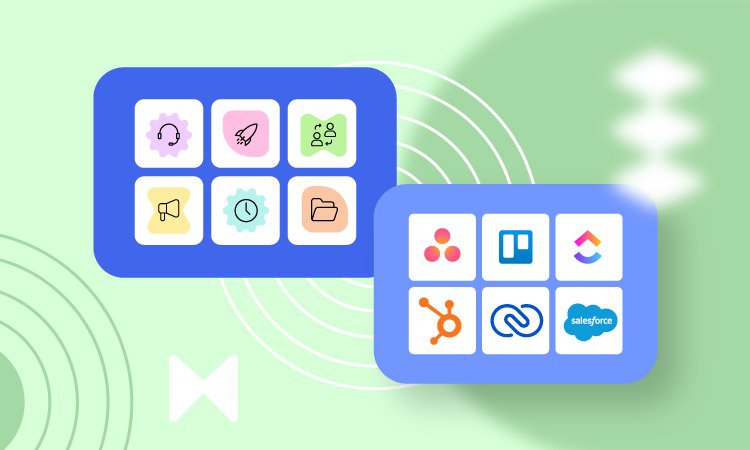Business software development is crucial for success because it can save time and money by automating tasks and streamlining processes. With the right developer talent, you can create an app or website that will take your company to greater heights. Business software also allows companies to innovate and stay ahead of the competition by creating unique products and services.
Software can help businesses analyze data, gain valuable insights, and make informed decisions. Plus, with the rise of remote work, software development provides the tools needed to support collaboration and productivity from anywhere.
Business Software Development: a Key Driver of Innovation
Software development is a critical component for businesses looking to develop innovative products and services. With the rapid pace of technological advancements, software development provides businesses with the tools and resources necessary to keep up with evolving trends and create unique offerings.
Through software development, businesses can leverage emerging technologies such as artificial intelligence, machine learning, and the Internet of Things (IoT) to create innovative products and services that meet the changing needs and expectations of their customers.
Businesses can also improve the customer experience through enhanced user interfaces, personalized recommendations, and seamless transactions. Software development also allows businesses to collect and analyze data, providing valuable insights into customer behavior and preferences, which can be used to develop more targeted products and services.
Gaining a Competitive Advantage
There are numerous examples of businesses that have used software development to disrupt their industries and gain a competitive advantage. Here are a few examples:
- Amazon – Amazon revolutionized the retail industry with its recommendation engine. The company uses machine learning algorithms to provide personalized recommendations to customers. Amazon also uses a one-click checkout process that streamlines the purchasing process. Data analysis has also allowed Amazon to optimize its logistics and supply chain operations, enabling it to deliver products to customers faster and more efficiently than its competitors.
- Airbnb – Airbnb’s disrupted the hospitality industry by providing a platform that allows individuals to rent out their homes or apartments to travelers. The company’s platform uses sophisticated search algorithms to match travelers with suitable accommodations, while its review system provides transparency and trust between hosts and guests.
- Netflix – Netflix has taken the entertainment industry down a new path by providing an on-demand streaming platform that offers personalized recommendations. The company’s use of data analysis has also enabled it to optimize its content production, ensuring that it creates original shows and movies that resonate with its audience.
Business Software Development and Streamlining Business Operations
Software can also be used to automate and optimize business processes, leading to increased efficiency and productivity in several ways.
Firstly, software automates repetitive tasks, such as data entry or report generation, that can be time-consuming and prone to errors. This frees up employees’ time to focus on more high-value tasks, such as analysis or decision-making, which can improve the overall quality of work and productivity.
Secondly, software streamlines and optimizes workflows, enabling teams to work more efficiently and collaboratively. For instance, project management software can provide a centralized platform for teams to manage tasks, track progress, and communicate effectively. This can reduce the time and effort required for coordination, leading to faster and more effective completion of projects.
Thirdly, software facilitates data analysis, providing valuable insights into business performance, customer behavior, and market trends. This can help businesses make informed decisions and develop effective strategies to optimize operations and improve the customer experience.
Finally, software helps businesses track and optimize resources, such as inventory or personnel. This can enable businesses to allocate resources more effectively, reducing waste and increasing productivity.

Streamlining Operations
There are many software tools available that businesses commonly use to streamline operations, including the following:
Customer Relationship Management (CRM) Software
CRM software helps businesses manage their customer interactions and relationships. It typically includes features such as contact management, sales pipeline tracking, and customer segmentation to help businesses improve their customer service and sales performance. Popular examples of CRM software include Salesforce, HubSpot, and Zoho CRM.
Accounting Software
This software helps businesses manage their financial transactions, including accounts payable and receivable, payroll, and tax reporting. It can help businesses automate bookkeeping tasks, improve accuracy, and generate financial reports. Popular examples of accounting software include QuickBooks, Xero, and FreshBooks.
Project Management Tools
If you need to track progress on tasks and collaborate effectively, this is the type of tool for you. Project management software typically includes features such as task management, team communication, and time tracking. Project management tools can help businesses improve project outcomes, reduce delays, and manage resources more efficiently. Popular examples of project management tools include ClickUp, Asana, and Trello.
Human Resources (HR) Software
Businesses need to manage their employee data, including recruiting, onboarding, performance management, and benefits administration. HR software can help with that and automate HR tasks, improve compliance, and reduce administrative overhead. Popular examples of HR software include BambooHR, Gusto, and ADP.
Enterprise Resource Planning (ERP) Software
ERP software help businesses manage their core business processes, including inventory management, supply chain management, and financial management. ERP software can help businesses improve visibility into operations, optimize resources, and automate tasks. Popular examples of ERP software include Oracle, SAP, and Microsoft Dynamics.
Business Software Development for Enhancing Customer Experience
Software is a powerful tool that businesses can use to improve the customer experience. With the help of software, businesses can collect and analyze customer data, providing personalized recommendations to customers based on their browsing and purchase history.
Real-time customer support through chatbots, social media, and other digital channels can help businesses respond quickly to customer queries and reduce response times, leading to higher levels of customer satisfaction.
The use of mobile apps provides customers with a more convenient and personalized experience, enabling them to access information, make purchases, and communicate with businesses from their mobile devices.
Finally, personalized loyalty programs can incentivize customers to remain loyal to a brand by offering personalized rewards and benefits based on their purchase history and engagement with the brand.
These software features can help businesses increase customer engagement, improve customer satisfaction, and ultimately drive business growth. By leveraging these tools, businesses can build strong relationships with their customers, which can translate to increased customer loyalty and revenue over time.
Building customer loyalty
In today’s digital landscape, many companies are using software to enhance the customer experience and build customer loyalty. For example, take Spotify, which has been using software to create a personalized music experience for its customers. The company’s recommendation engine uses machine learning algorithms to suggest music based on users’ listening history, creating a more engaging and personalized experience. It also has annual Wrapped campaigns, where users can access compiled data about their most streamed songs and share these on their social profiles.
Starbucks is another company that has used software to improve the customer experience. The company’s mobile app allows customers to order and pay for their drinks ahead of time, reducing wait times and providing a more convenient experience. This has helped Starbucks build customer loyalty and increase sales, as customers are more likely to return when they know they can get their drinks quickly and easily.
Developer for Business Software: The Bottom Line
When deciding between hiring a software developer or purchasing a ready-made software platform, businesses must carefully assess their unique needs, resources, and long-term objectives. Opting for a ready-made software platform can be appealing due to its convenience and immediate availability. Such platforms often offer a range of features and functionalities that cater to a broad audience. However, they may lack customization options, making it challenging to adapt them to specific business processes and requirements.
On the other hand, hiring a skilled software developer grants businesses the opportunity to create tailor-made solutions that precisely address their challenges and streamline operations. While this approach demands upfront investment, it can yield significant returns over time, as the software evolves and scales alongside the business. Moreover, a dedicated developer can provide ongoing technical support, updates, and maintenance, ensuring the software remains up-to-date and secure.
Ultimately, the decision hinges on your financial standing, the complexity of your operations, and the level of control and customization you. Striking the right balance between off-the-shelf solutions and custom development is vital in maximizing efficiency and gaining a competitive edge in the fast-paced digital landscape.

Power Your Business Software Development through Wing
Software development holds a critical role in modern business success. These tools enable businesses to develop innovative products and services, automate and optimize business processes, improve the customer experience, and transform operations to become more agile and responsive.
Given the importance of software development, it’s clear that businesses that invest in these capabilities are more likely to succeed in today’s market. By staying ahead of the curve and adopting new technologies and solutions, businesses can stay agile and competitive in the face of rapidly changing market conditions.
If you’re looking for someone to create a custom piece of software or design a website, you can’t go wrong with Wing. We thoroughly vet our developers and ensure that they have the right mix of technical and soft skills that are crucial for remote collaboration. Book a call today to learn more!
Aya is Wing Assistant’s blog manager. When she’s not wrangling content briefs, editing article drafts and handling on-page SEO, she is crafting messages for Wing’s other communication materials. Aya writes about SaaS startups, marketing for startups, search engine optimization, and pop culture.






